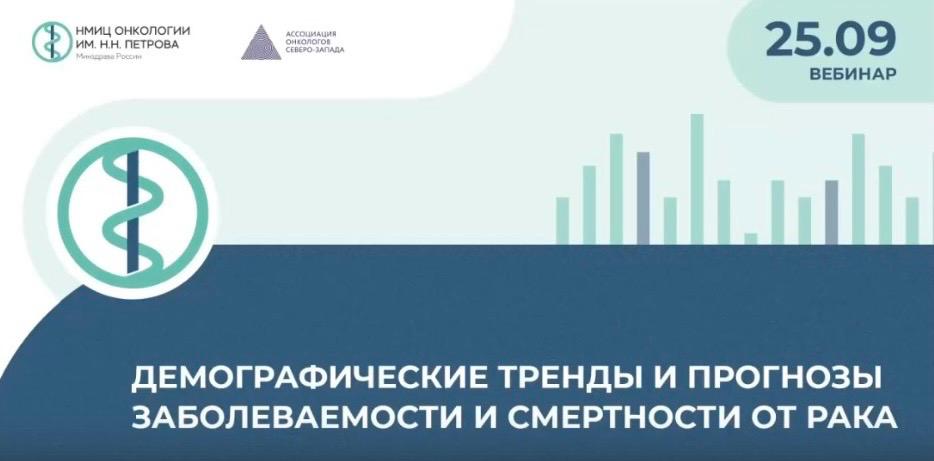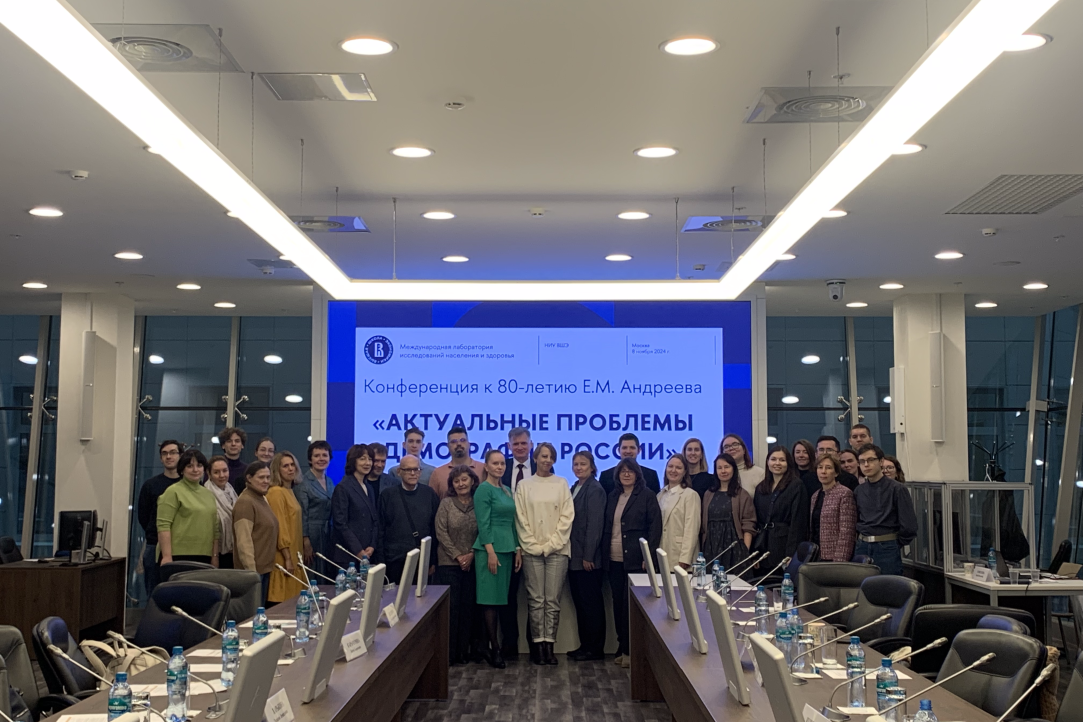
Demographic trends and projections of morbidity and mortality from cancer
On 25 September 2025, the National Medical Research Center of Oncology named after N.N. Petrov of the Ministry of Health of the Russian Federation held a webinar on "Demographic trends and projections of morbidity and mortality from cancer".

Researchers from the HSE International Laboratory for Population and Health presented their research results at the International Population Conference IPC2025 in Brisbane, Australia
From 13 to 18 July, the XXX International Population Conference (IPC2025) was held in Brisbane, Australia, organised by the International Union for the Study of Population (IUSSP) in conjunction with the Australian National University. The conference is held every four years and is considered one of the key events in global demographic science.
Reproductive behavior of Russian women with different levels of education
On May 28, 2025, a seminar titled "Reproductive behavior of Russian women with different levels of education" explored variations in the reproductive behavior of birth cohorts of Russian women.
Air temperature and population health in Russian cities: results of the first national study, 2000–2019
On May 15, the International Laboratory for Population and Health, in collaboration with the International Laboratory of Landscape Ecology, held a seminar on “Air temperature and population health in Russian cities: results of the first national study, 2000–2019.”The seminar featured presentations by Sergey Timonin, a research fellow at the Australian National University, and Natalia Shartova, a postdoctoral researcher at the Barcelona Institute for Global Health.

More Children, More Happiness: HSE Experts Study Impact of Number of Children on Russians' Assessment of Happiness
Russians with children feel happier than those without children. At the same time, the number of children influences the assessment of happiness: the more children Russians have, the happier they feel. These conclusions were outlined inthe report ‘More Children, More Happiness: The Impact of the Number of Children on Russians’ Assessment of Happiness,’ presented at the XXV Yasin (April) International Academic Conference on Economic and Social Development, held on April 15–18 at HSE University. The study was conducted by Elena Churilova, Senior Research Fellow, and Dmitry Jdanov, Chief Research Fellowat HSE International Laboratory for Population and Health.
The impact of changes in alcohol consumption on mortality in Russia
Russia is a country with a high consumption of strong alcohol by the population. At the seminar "The impact of changes in alcohol consumption on mortality in Russia" held on February 18, 2025, participants discussed the number of years of life that the average Russian person loses due to alcohol consumption, as well as the causes of death related to alcohol and the proportion of deaths caused by alcohol consumption.
Fertility and reproductive attitudes of the population of the Khanty-Mansi Autonomous Okrug
Khanty-Mansi Autonomous Okrug is a major oil-producing region in Russia with a favorable demographic situation and a range of measures in place to support families with children. The reproductive attitudes of the population of the Khanty-Mansi Autonomous Okrug and the factors of their implementation were discussed at the seminar "Fertility and reproductive attitudes of the population of the Khanty-Mansi Autonomous Okrug: results of an expedition trip", organized by the International Laboratory for Population and Health, HSE University.
The report was presented by Olga Rodina, a research assistant at the International Laboratory for Population and Health, a PhD student at the HSE Vishnevsky Institute of Demography.

Conference "Current issues of Russian Demography"
Can human life expectancy be more than 100 years? How do heat and cold waves affect mortality? Do the elderly experience isolation from society? Does alcohol-related mortality differ by region of Russia? These and other issues were discussed on November 8 at the international conference "Current issues of Russian Demography" organized by International Laboratory for Population and Health.

The expedition “Regional support measures as a factor of realization of reproductive intentions by example of Khanty-Mansiysk Autonomous Okrug - Yugra”
From July 28 to August 9, 2024, as part of the Student Expeditions Program of the Educational Initiatives Foundation of the HSE University “Rediscovering Russia”, the staff of the International Laboratory for Population and Health organized an expedition in the Khanty-Mansi Autonomous Okrug - Yugra, dedicated to the study of fertility and reproductive intentions. The expedition heads - Alexey Shchur and Vera Sokolova with a team of 10 students, including postgraduate demographers, students of the master's program “Demography”, bachelor's programs “Sociology”, “Geography of Global Change and Geoinformation Technologies”, visited Khanty-Mansiysk, Surgut, Kogalym, as well as the Russkinskaya village of Surgut district.
The purpose of the expedition was to study what factors (socio-economic, infrastructural, personal) determine the gap between the wanted number of children and the actual (expected) one, and to how much regional measures to support families influence reproductive decision-making. During the expedition, more than 900 respondents were interviewed and expert meetings were held with relevant departments and organizations that develop and implement demographic policy in the region.
Seminar presentation of the UN World Population Prospects 2024
On the evening of July 11, 2024, World Population Day, the Population Division of the United Nations Department of Economic and Social Affairs presented the updated World Population Prospects 2024. On July 12, the International Laboratory for Population and Health Research in collaboration with the National Center for Population and Health Research of the National Research University Higher School of Economics held a seminar to present the new projections, where they also discussed the population projections for Russia prepared by Federal State Statistics Service, projections of the Global Burden of Disease and the health of the elderly in the context of population aging.
